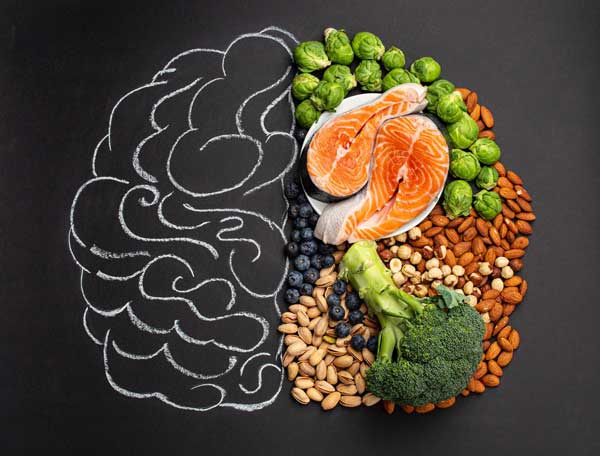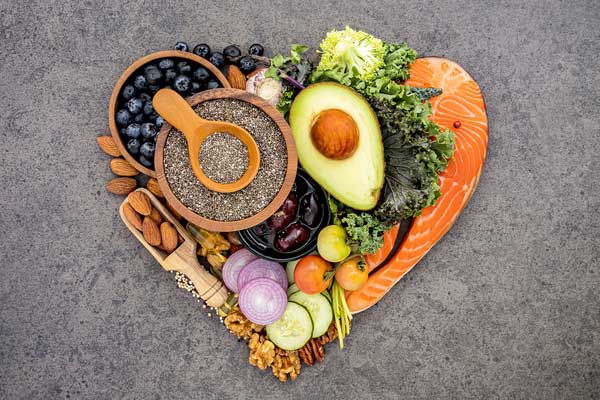Cancer is a devastating disease, but the foods you eat can have a major impact on your risk of developing cancer or experiencing a recurrence. Research has identified specific nutrients, compounds, and foods that have anti-cancer effects and can help cancer cells die. In this comprehensive guide, learn about 12 of the top foods to eat to support your body’s natural defense against cancer.

As a cancer survivor, the food you eat matters more than ever. An anti-cancer diet full of nutritious foods can help keep you cancer-free and strengthen your body against recurrences. While no one food is a silver bullet against cancer, incorporating a combination of specific foods into your diet gives your body the tools it needs to fight back.
In this article, we will cover 12 of the most powerful foods to help prevent and fight cancer. These foods contain key nutrients like antioxidants, vitamins, minerals, and fiber that are known to inhibit cancer growth and development. Adding more of these foods to your daily meals can promote healing and optimize your health.
1. Berries
Berries like blueberries, raspberries, and blackberries are packed with antioxidants and fiber, both of which are strongly linked to lower cancer risk. Their rich antioxidant content helps fight oxidative stress in the body, which can damage cells and contribute to cancer formation [1].
Additionally, the fiber in berries supports healthy digestion and gut health, which is emerging as a key factor in cancer prevention [2]. Aim to eat berries daily, either fresh, frozen, or even blended into a smoothie. The antioxidants and fiber in berries make them one of the top foods for any anti-cancer diet.
2. Citrus Fruits
Citrus fruits like oranges, grapefruits, lemons, and limes are an excellent source of immune-boosting vitamin C. This potent antioxidant can help replenish antioxidant levels in your body that may have been depleted after cancer treatment [3].
Maintaining adequate antioxidant status supports immune function and can lower cancer risk. Try adding citrus fruits to your meals and consider starting your day with hot lemon water to reap the benefits of vitamin C.

3. Garlic
Garlic contains a compound called allicin that has demonstrated anti-cancer properties in research studies [4]. Allicin appears to block cancer growth through multiple mechanisms, including enhancing DNA repair and stopping cancer cell proliferation.
Add more garlic to your cooking to take advantage of its protective effects. Crushing or chopping garlic releases more allicin, so mince or press fresh garlic and let it sit for 5-10 minutes before cooking. Adding generous amounts of garlic is an easy way to give your meals more anti-cancer firepower.
4. Tomatoes
Tomatoes contain the antioxidant lycopene, which has been associated with lower risk of prostate, lung, stomach, and colon cancers [5]. Cooking tomatoes actually increases the bioavailability of lycopene, so enjoy tomatoes in sauces, soups, salsas, and other cooked preparations.
Combining tomatoes with olive oil allows your body to absorb even more lycopene. Add more tomatoes to your diet to reduce oxidative stress and inflammation, two factors that can contribute to cancer development.
5. Cruciferous Vegetables
Cruciferous vegetables including broccoli, cauliflower, Brussels sprouts, kale, and cabbage contain sulfur-containing compounds called glucosinolates. These compounds support detoxification and may protect against cancer growth [6].
In addition to their cancer-fighting properties, cruciferous veggies are a great source of fiber. Aim to eat 1-2 servings daily to take advantage of their benefits. Lightly cook cruciferous vegetables to retain nutrients and enhance the bioavailability of the glucosinolates.
6. Leafy Green Vegetables
Leafy greens like spinach, Swiss chard, kale, and collard greens are nutritional powerhouses. They provide antioxidants like vitamin C, fiber, and a range of cancer-protective carotenoids like lutein and beta-carotene [7].
Fill half your plate with leafy greens and other vegetables at each meal. If you struggle to eat a lot of raw veggies, try adding them to smoothies, soups, and sauces. Leafy greens are one of the foundations of an anti-cancer diet.

7. Green Tea
Population studies have found that regular green tea consumption is associated with lower risk of developing certain cancers, including breast, colorectal, and prostate cancers [8]. The polyphenols in green tea, especially EGCG, have strong anti-inflammatory and antioxidant effects that inhibit cancer cell growth and development.
Sip on 1-2 cups of green tea per day to reduce oxidative stress and inflammation. Opt for decaffeinated varieties if you are sensitive to caffeine. Adding lemon can also help enhance the bioavailability of the protective compounds in green tea.
8. Seeds and Nuts
Seeds and nuts contain protein, fiber, vitamins, minerals, and plant compounds that may guard against cancer. However, portion control is important, as eating too many can cause unwanted weight gain, a risk factor for cancer recurrence. Enjoy a small handful as a snack or sprinkle them on salads and in yogurt.
Some of the best seeds and nuts for cancer prevention include walnuts, Brazil nuts, flax seeds, chia seeds, and hemp seeds. These provide anti-inflammatory omega-3 fats as well as lignans, which have antioxidant effects.
9. Fatty Fish
Fatty fish like salmon and mackerel are loaded with anti-inflammatory omega-3 fatty acids. Population studies have found that higher intakes of these healthy fats are associated with lower risk of certain cancers, especially breast cancer [9].
Aim to eat fatty fish like salmon or tuna 1-2 times per week. If you don’t eat fish, omega-3 supplements are a good option under medical supervision.
10. Beans and Lentils
Beans and lentils are packed with protein, fiber, and a variety of bioactive compounds. The fiber they contain promotes healthy digestion, which emerging research suggests may lower colon cancer risk [10]. They also contain compounds called saponins that may protect against cancer development.
Enjoy beans or lentils as the base of veggie-packed salads, soups, chilis, and curries. Their nutritional profile makes them a stellar anti-cancer food.
11. Whole Grains
Swap out refined grains for unprocessed whole grains like quinoa, brown rice, oats, and barley. Whole grains are rich in fiber, B vitamins, minerals, and phytochemicals that have antioxidant effects [11].
The fiber in whole grains supports digestion and gut health while the vitamins and minerals boost immune function. Make at least half your grain servings whole grains to maximize your intake of essential nutrients.
12. Turmeric
Curcumin is the active compound in the yellow spice turmeric, which has been used medicinally for centuries. Curcumin exhibits anti-inflammatory, antioxidant, and even anti-cancer effects [12]. However, it can interact with certain chemotherapy drugs like tamoxifen, so talk to your doctor before taking curcumin supplements.
Enjoying turmeric in food should not be an issue for most, however. Boost the anti-cancer effects of your meals by adding turmeric into curries, soups, smoothies, and more. Pairing it with black pepper enhances curcumin’s bioavailability.
Conclusion
Preventing cancer recurrence and optimizing health after a diagnosis starts with your diet. Fill your plate with a variety of colorful fruits, vegetables, whole grains, beans, nuts, seeds, and anti-inflammatory fats from fish. Combining these 12 foods maximizes your intake of protective nutrients to help inhibit cancer development and support the health of every cell in your body.
Let food be your medicine by making these foods a consistent part of your diet. Along with other lifestyle factors like exercise, adequate sleep, and stress management, an anti-cancer diet gives your body the tools it needs to stay cancer-free for life.
